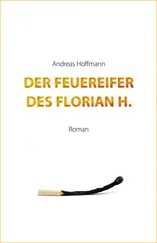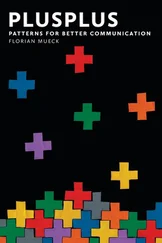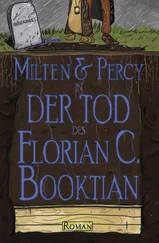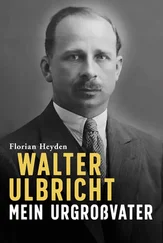Florian Cajori - William Oughtred
Здесь есть возможность читать онлайн «Florian Cajori - William Oughtred» — ознакомительный отрывок электронной книги совершенно бесплатно, а после прочтения отрывка купить полную версию. В некоторых случаях можно слушать аудио, скачать через торрент в формате fb2 и присутствует краткое содержание. Жанр: foreign_antique, foreign_prose, на английском языке. Описание произведения, (предисловие) а так же отзывы посетителей доступны на портале библиотеки ЛибКат.
- Название:William Oughtred
- Автор:
- Жанр:
- Год:неизвестен
- ISBN:нет данных
- Рейтинг книги:4 / 5. Голосов: 1
-
Избранное:Добавить в избранное
- Отзывы:
-
Ваша оценка:
- 80
- 1
- 2
- 3
- 4
- 5
William Oughtred: краткое содержание, описание и аннотация
Предлагаем к чтению аннотацию, описание, краткое содержание или предисловие (зависит от того, что написал сам автор книги «William Oughtred»). Если вы не нашли необходимую информацию о книге — напишите в комментариях, мы постараемся отыскать её.
William Oughtred — читать онлайн ознакомительный отрывок
Ниже представлен текст книги, разбитый по страницам. Система сохранения места последней прочитанной страницы, позволяет с удобством читать онлайн бесплатно книгу «William Oughtred», без необходимости каждый раз заново искать на чём Вы остановились. Поставьте закладку, и сможете в любой момент перейти на страницу, на которой закончили чтение.
Интервал:
Закладка:
AS RECTOR AND AMATEUR MATHEMATICIAN
It was in 1604 that Oughtred entered upon his professional life-work as a preacher, being instituted to the vicarage of Shalford in Surrey. In 1610 he was made rector of Albury, where he spent the remainder of his long life. Since the era of the Reformation two of the rectors of Albury obtained great celebrity from their varied talents and acquirements – our William Oughtred and Samuel Horsley. Oughtred continued to devote his spare time to mathematics, as he had done in college. A great mathematical invention made by a Scotchman soon commanded his attention – the invention of logarithms. An informant writes as follows:
Lord Napier, in 1614, published at Edinburgh his Mirifici logarithmorum canonis descriptio … It presently fell into the hands of Mr. Briggs, then geometry-reader at Gresham College in London: and that gentleman, forming a design to perfect Lord Napier’s plan, consulted Oughtred upon it; who probably wrote his Treatise of Trigonometry about the same time, since it is evidently formed upon the plan of Lord Napier’s Canon . 4 4 New and General Biographical Dictionary (John Nichols), London, 1784, art. “Oughtred.”
It will be shown later that Oughtred is very probably the author of an “Appendix” which appeared in the 1618 edition of Edward Wright’s translation into English of John Napier’s Descriptio . This “Appendix” relates to logarithms and is an able document, containing several points of historical interest. Mr. Arthur Hutchinson of Pembroke College informs me that in the university library at Cambridge there is a copy of Napier’s Constructio (1619) bound up with a copy of Kepler’s Chilias logarithmorum (1624), that at the beginning of the Constructio is a blank leaf, and before this occurs the title-page only of Napier’s Descriptio (1619), at the top of which appears Oughtred’s autograph. The history of this interesting signature is unknown.
HIS WIFE
In 1606 he married Christ’sgift Caryll, daughter of Caryll, Esq., of Tangley, in an adjoining parish. 5 5 Rev. Owen Manning, History of Antiquities in Surrey , Vol. II, p. 132.
We know very little about Oughtred’s family life. The records at King’s College, Cambridge, 6 6 Skeleton Collegii Regalis Cantab.: Or A Catalogue of All the Provosts, Fellows and Scholars, of the King’s College.. since the Foundation Thereof , Vol. II, “William Oughtred.”
mention a son, but it is certain that there were more children. A daughter was married to Christopher Brookes. But there is no confirmation of Aubrey’s statements, 7 7 Aubrey, op. cit. , Vol. II, p. 107.
according to which Oughtred had nine sons and four daughters. Reference to the wife and children is sometimes made in the correspondence with Oughtred. In 1616 J. Hales writes, “I pray let me be remembered, though unknown, to Mistress Oughtred.” 8 8 Rigaud, Correspondence of Scientific Men of the Seventeenth Century , Oxford, Vol. I, 1841, p. 5.
As we shall see later, Oughtred had a great many young men who came to his house and remained there free of charge to receive instruction in mathematics, which was likewise gratuitous. This being the case, certainly great appreciation was due to Mrs. Oughtred, upon whom the burden of hospitality must have fallen. Yet chroniclers are singularly silent in regard to her. Hers was evidently a life of obscurity and service. We greatly doubt the accuracy of the following item handed down by Aubrey; it cannot be a true characterization:
His wife was a penurious woman, and would not allow him to burne candle after supper, by which meanes many a good notion is lost, and many a probleme unsolved; so that Mr. [Thomas] Henshawe, when he was there, bought candle, which was a great comfort to the old man. 9 9 Aubrey, op. cit. , Vol. II, p. 110.
IN DANGER OF SEQUESTRATION
Oughtred spent his years in “unremitted attention to his favourite study,” sometimes, it has been whispered, to the neglect of his rectorial duties. Says Aubrey:
I have heard his neighbour ministers say that he was a pittiful preacher; the reason was because he never studyed it, but bent all his thoughts on the mathematiques; but when he was in danger of being sequestred for a royalist, he fell to the study of divinity, and preacht (they sayd) admirably well, even in his old age. 10 10 Ibid. , p. 111.
This remark on sequestration brings to mind one of the political and religious struggles of the time, the episcopacy against the independent movements. Says Manning:
In 1646 he was cited before the Committee for Ecclesiastical Affairs, where many articles had been deposed against him; but, by the favour of Sir Bulstrode Whitlock and others, who, at the intercession of William Lilye the Astrologer, appeared in great numbers on his behalf, he had a majority on his side, and so escaped a sequestration. 11 11 Op. cit. , Vol. II, p. 132.
Not without interest is the account of this matter given by Lilly himself:
About this Time, the most famous Mathematician of all Europe, (Mr. William Oughtred, Parson of Aldbury in Surrey) was in Danger of Sequestration by the Committee of or for plunder’d Ministers; ( Ambo-dexters they were;) several inconsiderable Articles were deposed and sworn against him, material enough to have sequestred him, but that, upon his Day of hearing, I applied my self to Sir Bolstrode Whitlock, and all my own old Friends, who in such Numbers appeared in his Behalf, that though the Chairman and many other Presbyterian Members were stiff against him, yet he was cleared by the major Number. The truth is, he had a considerable Parsonage, and that only was enough to sequester any moderate Judgment: He was also well known to affect his Majesty [Charles I]. In these Times many worthy Ministers lost their Livings or Benefices, for not complying with the Three-penny Directory. 12 12 Mr. William Lilly’s History of His Life and Times, From the Year 1602 to 1681 , London, 1715, p. 58.
HIS TEACHING
Oughtred had few personal enemies. His pupils held him in highest esteem and showed deep gratitude; only one pupil must be excepted, Richard Delamain. Against him arose a bitter controversy which saddened the life of Oughtred, then an old man. It involved, as we shall see later, the priority of invention of the circular slide rule and of a horizontal instrument or portable sun-dial. In defense of himself, Oughtred wrote in 1633 or 1634 the Apologeticall Epistle , from which we quoted above. This document contains biographical details, in part as follows:
Ever since my departure from the Vniversity, which is about thirty yeares, I have lived neere to the Towne of Guildford in Surrey: where, whether I have taken so much liberty to the losse of time, and the neglect of my calling the whole Countrey thereabout, both Gentry and others, to whom I am full well knowne, will quickely informe him; my house being not past three and twenty miles from London: and yet I so hid my selve at home, that I seldomly travelled so farre as London once in a yeare. Indeed the life and mind of man cannot endure without some interchangeablenesse of recreation, and pawses from the intensive actions of our severall callings; and every man is drawne with his owne delight. My recreations have been diversity of studies: and as oft as I was toyled with the labour of my owne profession, I have allayed that tediousnesse by walking in the pleasant and more then Elysian fields of the diverse and various parts of humane learning, and not the Mathematics onely.
Читать дальшеИнтервал:
Закладка:
Похожие книги на «William Oughtred»
Представляем Вашему вниманию похожие книги на «William Oughtred» списком для выбора. Мы отобрали схожую по названию и смыслу литературу в надежде предоставить читателям больше вариантов отыскать новые, интересные, ещё непрочитанные произведения.
Обсуждение, отзывы о книге «William Oughtred» и просто собственные мнения читателей. Оставьте ваши комментарии, напишите, что Вы думаете о произведении, его смысле или главных героях. Укажите что конкретно понравилось, а что нет, и почему Вы так считаете.












